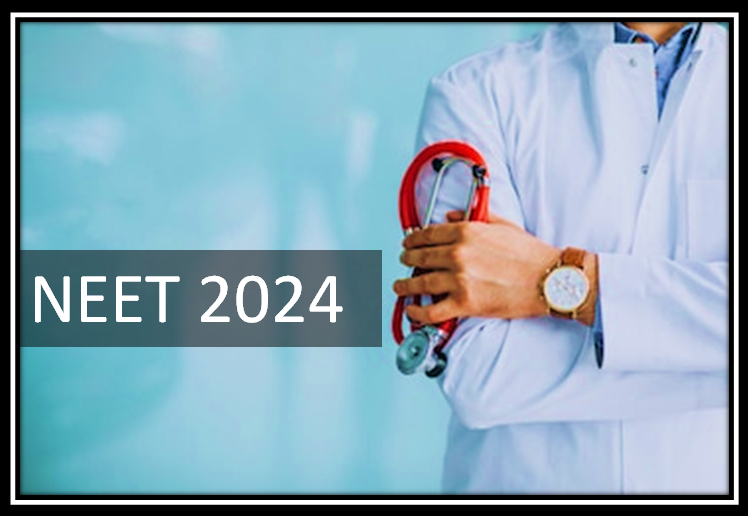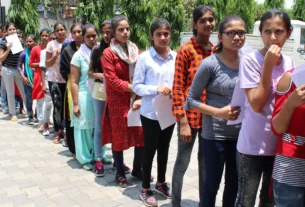The National Eligibility cum Entrance Test for Postgraduate (NEET PG) 2025 is poised to hold significant importance for aspiring medical professionals in India. This examination serves as a critical gateway for many graduates aiming to secure admission into postgraduate medical courses, which are integral for their professional development. As the examination continues to evolve, this year’s iteration introduces a notable shift in its assessment format, proposing a two-shift examination system. This change aims to accommodate the increasing number of applicants while ensuring the integrity and quality of the assessment process.
The introduction of the two-shift format has sparked a range of responses, particularly among the aspirants who are directly affected by these adjustments. A poll conducted by Shiksha.com has provided valuable insights into the concerns and apprehensions surrounding these modifications. The results indicate a considerable level of opposition from the community, reflecting the anxiety about potential impacts on the examination experience and outcomes. Key issues raised by participants in the poll include the adequacy of preparation time, the subject distribution across shifts, and the perceived fairness of the dual format.
Furthermore, transitioning to a two-shift examination format is not without its challenges. Aspirants have expressed concerns regarding the logistical implications it could entail, as well as the potential for discrepancies in examination conditions between the two sessions. These factors contribute to an atmosphere of uncertainty that has led to a vocalized demand for clarity and consideration from the governing bodies overseeing the NEET PG 2025. Understanding these perspectives is critical, as it sets the foundation for analyzing the intensity of the opposition manifested in the Shiksha.com poll results.
Poll Results: A Closer Look at the Opposition
The Shiksha.com poll provides comprehensive insights into the sentiments surrounding the NEET PG 2025 examination format, revealing significant opposition among medical aspirants. A remarkable 89% of respondents expressed opposition to the proposed two-shift exam system. This overwhelming majority indicates a profound concern regarding the viability and fairness of conducting such a critical evaluation across two separate sessions.
Analyzing the demographics of those who participated in the poll is crucial for understanding the opposition better. The majority of respondents were final-year medical students and interns, comprising about 75% of the participants. Approximately 15% were recent graduates, while the remaining 10% comprised various stakeholders, including educators and healthcare practitioners involved in the NEET ecosystem. This demographic breakdown illustrates that those directly affected by the examination system are voicing their concerns and reservations.
Among the primary reasons cited for opposition, the perceived inequity of a two-shift system was paramount. Respondents argued that variations in examiner biases, resources, and environment across shifts could lead to inconsistent evaluation and unfair advantage to certain candidates. Additionally, the increased complexity of logistical arrangements associated with a two-shift exam has raised concerns about its execution and effectiveness. Many students also voiced their fears regarding the psychological impact of such a format, suggesting that the high-stakes nature of medical examinations should not be complicated further.
This striking opposition sheds light on the overall sentiment prevalent within the medical community. The high percentage of dissent indicates a collective skepticism towards the existing examination framework and an urgent need for reevaluation. With significant implications for the future of medical education, these poll results suggest that stakeholders must address the concerns raised by aspirants to uphold the integrity and fairness of the NEET PG assessment process.

Implications of the Poll Results for Medical Education Policy
The recent poll conducted by Shiksha.com revealed a significant opposition to the NEET PG 2025, shedding light on the voices of medical aspirants who are increasingly dissatisfied with the current examination framework. The overwhelming resistance encapsulated in the poll results may serve as a catalyst for medical education policy reforms in India. This shift could prompt decision-makers and regulatory bodies to rethink the existing NEET PG format, considering the perspectives and concerns expressed by candidates.
As the medical community observes this growing dissent, it is essential for policymakers to recognize the critical feedback loop between aspirants and regulatory authorities. The survey indicates a considerable need for dialogue and collaborative actions that prioritize the quality of medical education and the well-being of future healthcare professionals. This development could ultimately pave the way for revising examination structures, ensuring they are more aligned with the contemporary demands of medical training and practice.
Moreover, the implications of the poll resonate with broader discussions around standardization and accessibility in medical entrance assessments. By addressing the feedback voiced by candidates, regulatory bodies can enhance the examination’s fairness and transparency. Such amendments could also empower students, giving them a greater sense of agency in the education they pursue. It is imperative for the establishment to be attentive to the consumer-like expectations of medical aspirants which may initiate shifts toward more competent and pragmatic assessment models.
In light of this situation, the pose of reevaluating the NEET PG examination’s format becomes imperative for the enhancement of India’s medical education landscape. Engaging with the results of polls like the one from Shiksha.com could signify a turning point in how future examinations are structured, ultimately benefiting both aspirants and the healthcare system as a whole.
Voices from the Ground: Aspirants’ Perspectives and Future Directions
Recent debates surrounding the NEET PG 2025 examination have shed light on the diverse opinions among medical aspirants. A significant portion of these candidates have voiced their concerns on various social media platforms and forums, revealing a collective sentiment that transcends individual experiences. Many aspirants express their dissatisfaction with the current two-shift examination system, arguing that it exacerbates stress and complicates the already challenging preparation process. The inconsistent experience between shifts has raised questions about fairness, with candidates in different slots reporting varying levels of difficulty and question types.
Additionally, numerous participants in the Shiksha.com poll highlighted the necessity of restructuring the examination format. Aspirants have proposed alternatives to the two-shift system, suggesting a single, unified testing format that would foster a more equitable environment. This suggestion has garnered support, as candidates believe that a standardized approach would level the playing field and provide a clearer measurement of their competencies. Many aspirants have also recommended implementing more comprehensive preparatory measures, such as extended preparation timelines or additional resources, to ensure all candidates feel adequately equipped to face the examination.
The overarching sentiment among medical aspirants goes beyond immediate concerns; there is a profound desire for transparency and inclusivity in the examination process. Candidates have called for an open forum where their voices can be heard, advocating for collaborative discussions with regulatory bodies to address grievances and develop more suitable assessment methods. This engagement is crucial for aspiring doctors as they navigate the complexities of medical education in India.
In conclusion, the perspectives shared by medical aspirants reveal an urgent need for reform in the NEET PG examination structure. By actively listening to the voices from the ground, stakeholders can develop strategies that enhance the fairness and effectiveness of future examinations, ultimately contributing to a more robust medical education framework.





